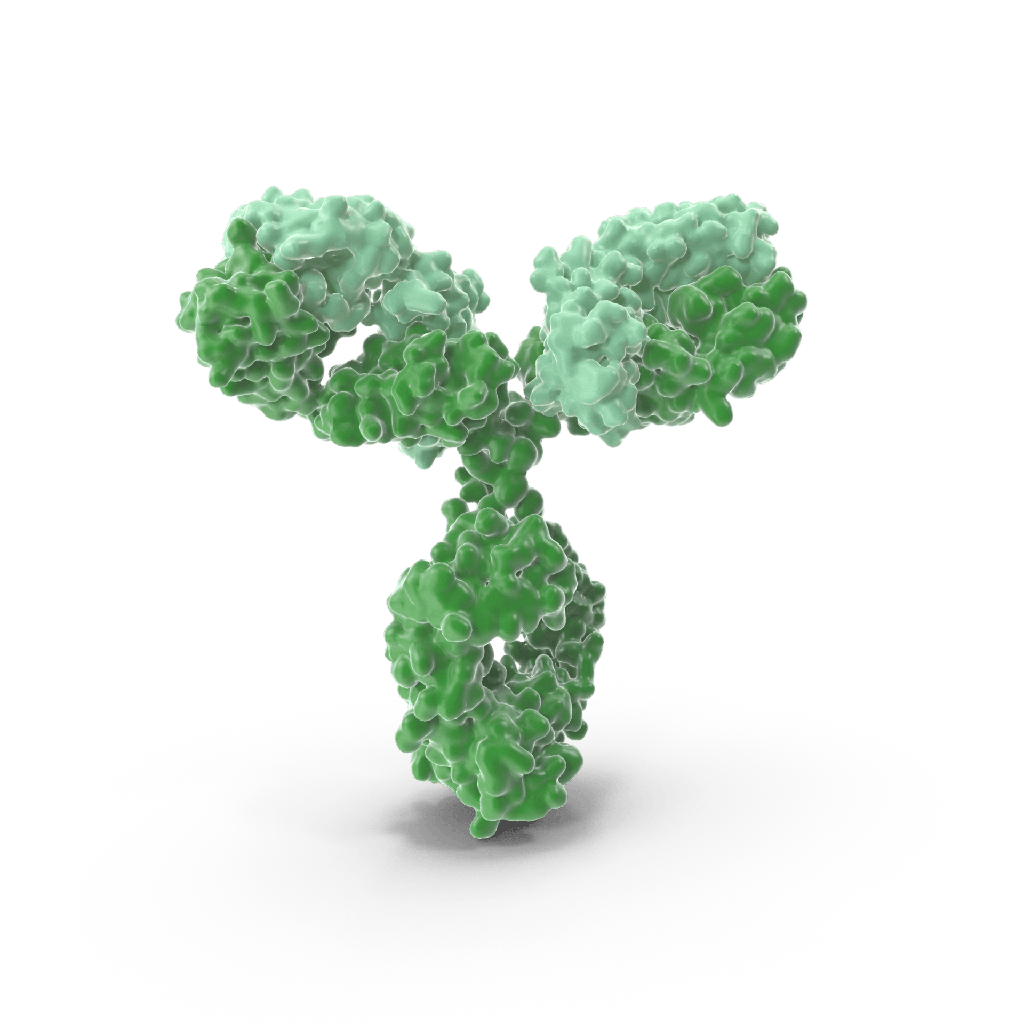Anti-Interferon gamma Mouse Monoclonal Antibody - 100 μL
Anti-Interferon Gamma Mouse Monoclonal Antibody: A Detailed Overview
Introduction
Anti-Interferon Gamma (IFN-γ) Mouse Monoclonal Antibody is an essential reagent in various immunological applications, particularly for the detection and quantification of IFN-γ in both in vitro and in vivo studies. IFN-γ, a cytokine primarily produced by T-cells, natural killer cells, and other immune cells, plays a crucial role in the immune response, particularly in the activation of macrophages and other immune cells. Understanding its role and behavior is fundamental to studying immune responses, infectious diseases, autoimmune disorders, and cancer immunology.
Structure and Function
The Anti-IFN-γ Mouse Monoclonal Antibody is generated by fusing mouse myeloma cells with spleen cells from immunized mice, which leads to the production of a monoclonal antibody that is specific to IFN-γ. The antibody binds to a specific epitope on IFN-γ, typically on the protein's surface, preventing its interaction with its receptor or other binding proteins. This specificity makes the antibody a valuable tool for both the detection and neutralization of IFN-γ.
Monoclonal antibodies, like this anti-IFN-γ antibody, provide higher consistency and reproducibility in research compared to polyclonal antibodies, as they are derived from a single clonal source. This consistency is crucial in high-precision techniques such as flow cytometry, Western blotting, and ELISA.
Applications
- Flow Cytometry (FCM): The antibody is widely used in flow cytometry for the identification and quantification of IFN-γ-producing cells. By using a conjugated fluorochrome, the antibody allows researchers to track and quantify cytokine production at the single-cell level. This is particularly useful in immunophenotyping and in studying T-cell activation and response.
- Enzyme-Linked Immunosorbent Assay (ELISA): Anti-IFN-γ Mouse Monoclonal Antibodies are often used in sandwich ELISA formats to detect and quantify IFN-γ levels in serum, plasma, or cell culture supernatants. The antibody captures the cytokine, and a secondary antibody is used to quantify it, making it a sensitive method for cytokine measurement in various experimental conditions.
- Western Blotting: When used in Western blotting, this monoclonal antibody enables the detection of IFN-γ in complex protein mixtures. Its high specificity ensures that only IFN-γ is recognized, avoiding cross-reactivity with other proteins in the sample.
- Immunohistochemistry (IHC): This monoclonal antibody can be applied in tissue samples to detect IFN-γ expression in various tissues, including immune cells and tumor microenvironments. Its utility in IHC aids in the study of IFN-γ’s role in inflammation, cancer, and other pathological conditions.
- Neutralization Assays: Anti-IFN-γ monoclonal antibodies can be used in neutralization assays to block the activity of IFN-γ, enabling researchers to explore its functional effects in immune responses. These assays are particularly important for studying the roles of IFN-γ in autoimmune diseases and chronic inflammation.
Binding Specificity
The binding specificity of the Anti-IFN-γ Mouse Monoclonal Antibody is an essential feature, as it ensures that the antibody exclusively recognizes IFN-γ without cross-reacting with other cytokines. The binding affinity can vary depending on the clone of the monoclonal antibody, and some may bind with higher affinity, making them more suitable for specific applications such as high-sensitivity assays.
Isotype and Conjugates
Anti-IFN-γ monoclonal antibodies can be produced in various isotypes, including IgG1, IgG2a, IgG2b, or IgM. The choice of isotype can influence the antibody's performance in different assays. For instance, IgG isotypes are typically used for most immunological assays, while IgM may be more suitable for applications requiring strong binding to the target antigen.
Additionally, these antibodies can be conjugated with various fluorochromes, enzymes (e.g., HRP or AP), or beads for specific applications like flow cytometry, ELISA, and immunohistochemistry. The conjugate used often determines the sensitivity and detection capabilities of the assay.
Reactivity and Cross-reactivity
Anti-IFN-γ Mouse Monoclonal Antibodies are typically highly specific for the mouse IFN-γ protein. Some antibodies may also show cross-reactivity with human IFN-γ, though this depends on the monoclonal antibody's specific epitope and the species used for immunization. Researchers should carefully evaluate the cross-reactivity before using the antibody in non-mouse models.
Limitations
While Anti-IFN-γ Mouse Monoclonal Antibodies are highly specific, there are limitations in their use. For example, the antibody may not be effective in detecting low amounts of IFN-γ in very complex samples due to the need for high sensitivity. Additionally, some monoclonal antibodies may not detect IFN-γ in certain post-translational modifications or isoforms, which can limit their utility in some research contexts.
Conclusion
Anti-Interferon Gamma Mouse Monoclonal Antibodies are invaluable tools in immunology, providing precise, reproducible methods for studying IFN-γ’s role in immune function and disease. They are indispensable in numerous research applications, including cytokine quantification, immune cell activation studies, and neutralization assays. With high specificity and consistent performance, they continue to play a vital role in advancing our understanding of immune responses in health and disease.

